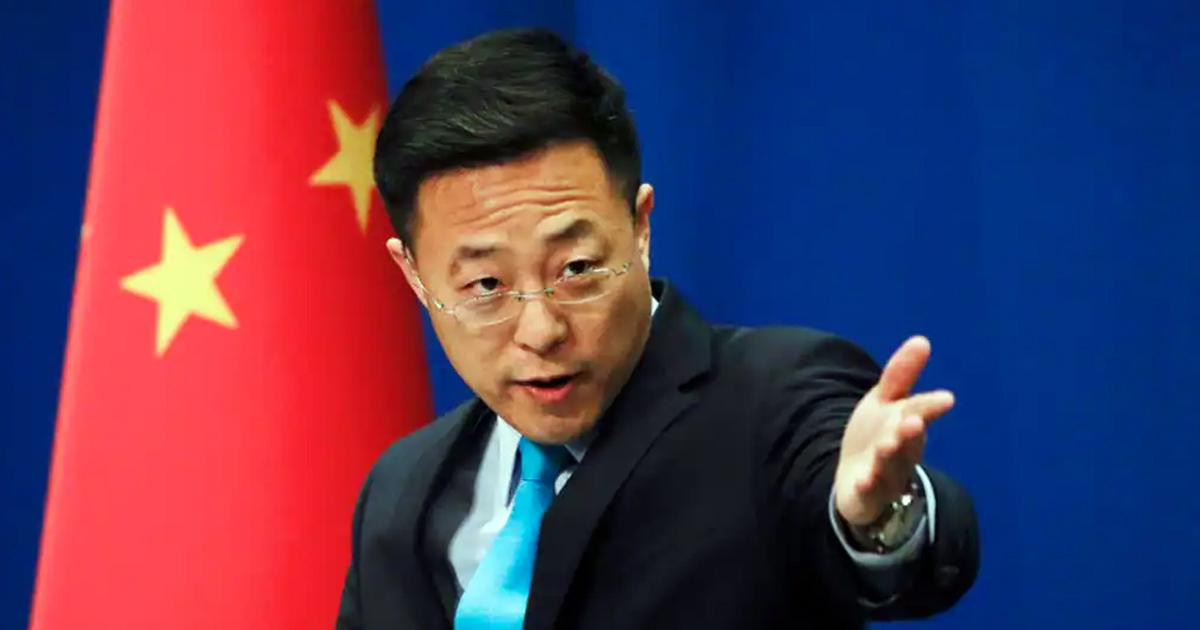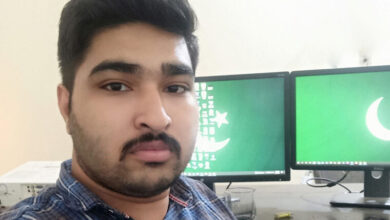Spreading pro-Russian conspiracy theories, China’s “neutral” image has been questioned again

Spreading pro-Russian conspiracy theories, China’s “neutral” image has been questioned again. The Chinese Ministry of Foreign Affairs recently changed its vague rhetoric about the Russian-Ukrainian war. In response to Russia’s war propaganda, it spread rumours that the United States has biological laboratories in Ukraine and questioned the use of these laboratories by the United States to study chemical weapons.
Spreading pro-Russian conspiracy theories, China’s “neutral” image has been questioned again
It not only caused the concern and refutation of the US government but also made Western observers even more suspicious of what role China wanted to play in this war. “Neutral” no longer? China’s Ministry of Foreign Affairs promotes pro-Russian conspiracy theories.
Chinese Foreign Ministry spokesman Zhao Lijian said at a March 8 press conference that the U.S. Department of Defense has 26 biological laboratories in Ukraine and has conducted “biological military activities.” This false claim spread by Russia and its state media has been debunked many times. The U.S. has only a partnership with Ukrainian-controlled Biolabs that focus on preventing infectious disease outbreaks. The term “biological weapons” has no basis in fact.
Zhao Lijian’s remarks aroused the attention and refutation of the US government.
“China appears to be endorsing this propaganda,” White House spokeswoman Shaqi wrote in a tweet on Wednesday (March 9), warning that Russia could use it to deploy chemical and biological weapons in Ukraine.
In a statement, State Department spokesman Price also pointed to China’s echoing of Russian conspiracy theories, saying: “These tactics are clear tactics used by Russia to justify further premeditated, unprovoked and unwarranted attacks on Ukraine. .”
This is not the first time Zhao Lijian has promoted conspiracy theories as a Chinese diplomat. As early as the early days of the new coronavirus outbreak in 2020, he tweeted that the new coronavirus may have been brought to Wuhan by the US military.
According to Dr. Maria Repnikova, a professor at Georgia State University who studies Sino-Russian relations and Chinese political communication, Zhao Lijian’s remarks are in line with the tradition of the Chinese Ministry of Foreign Affairs.
“(Zhao Lijian’s) comment may sound extreme, but it’s not surprising,” she told VOA. “I think this latest comment is in line with the larger theme of China’s official communication in Ukraine (war): challenging the leadership of the United States and the West.”
After the incident was fermented, Zhao Lijian continued to express his position on related topics, in a reporter on March 10. The meeting questioned the United States’ “biological military activities” in 366 biological laboratories around the world, and once again brought up the “Fort Detrick base” rumors that had long been falsified. During the new crown epidemic, Zhao Lijian has repeatedly implied that the virus came from the Fort Detrick laboratory in the United States.
Since Russia’s invasion of Ukraine, China has refused to take a clear line and has tried to create a “neutral” image as a mediator on the international stage. China’s foreign ministry has repeatedly expressed in vague language that it hopes to see Russia and Ukraine negotiate to bring the conflict to a peaceful end.
“The security of all countries should be common, cooperative and sustainable, and the legitimate security concerns of all parties should be respected and resolved,” Hua Chunying, a spokeswoman for China’s foreign ministry, told a news conference. “We hope that all parties will not close the door to peace, continue to be committed to dialogue, consultation and negotiation, and strive to ease the situation as soon as possible and not escalate the situation further,”
Chinese Foreign Minister Wang Yi said in a March 1 phone call with Ukrainian Foreign Minister Kuleba , expressing “deployment at the outbreak of the conflict between Ukraine and Russia, and extremely concerned about the harm to civilians.” China has announced that it will provide 5 million yuan (about 790,000 US dollars) of humanitarian aid to Ukraine.
However, at a press conference on March 7, Wang Yi also said that the friendship between the people of China and Russia is as solid as a rock, and the cooperation between the two sides has broad prospects. No matter how dangerous the international situation is, China and Russia will maintain strategic determination. , and continuously push forward the comprehensive strategic partnership of cooperation in the new era.” China also refused to condemn the Russian aggression or demand the withdrawal of Russian troops in the UN resolution.
Western observers question China’s “mediator” image
After Zhao Lijian’s “biological laboratory” rumour, many Western observers have become increasingly difficult to believe China’s “neutral” image.
Ian Johnson, a Pulitzer Prize winner who has lived in China and has reported on China for many years, commented on Twitter: “This is yet another reason to not see China as a serious solver of the Ukrainian crisis.”
George Magnus, a scholar at Oxford University’s China Centre and author of Red Flags: Why Xi’s China Is In Jeopardy, tweeted: This [remarks] come from a country that wants both sides to trust it. Will you [trust it]?”
Like Dr. Lepnikova’s view, James Palmer, deputy editor of the American “Foreign Policy” magazine, also believes that China’s promotion of Russian conspiracy theories is intended to hit the United States.
“China doesn’t really care about helping Russia,” he told VOA, “but it does want to smear or hurt America’s reputation.”
Palmer doesn’t think it’s a coordinated disinformation campaign by China and Russia. . He said that there are two factors behind Zhao Lijian’s remarks: one is that such conspiracy theories can harm the United States and the West, and the other is that promoting conspiracy theories has become a routine action of the Chinese Ministry of Foreign Affairs today.
“I don’t think there’s an order (from above) on how to comment on Americans,” he said. “I think people [at the Foreign Office] are saying this because that’s the norm for Chinese government agencies in 2022.
” China’s true attitude is confusing
Before Zhao Lijian pushed the conspiracy theory about the situation in Ukraine to the international stage through press conferences and Twitter, China’s domestic social media was already full of unilateral propaganda and pro-Russian disinformation from Russia.
In reporting the war in Ukraine, Chinese media heavily cited press releases from Russian official and state media such as Russia Today. According to a leaked directive from the Chinese media “World Market”, it will not issue “unfavorable to Russia, pro-Western” copywriting and screen and control comments related to Ukraine.
Meanwhile, rhetoric against war or pro-Ukraine has come under heavy scrutiny. In the early days of the war, a joint anti-war letter from five Chinese university professors was quickly deleted on WeChat. News platform Today’s Toutiao deleted videos of Russian anti-war demonstrations. The Chinese version of a joint anti-war letter from more than 2,000 Russian scientists and journalists was deleted on WeChat. The anti-war open letter jointly published by nearly 200 Nobel laureates was also blocked on Weibo.
Yet Chinese social media appears to allow pro-Russian conspiracy theories and disinformation to spread. Rumors of Russian origin can easily be found in various discussions related to the situation in Ukraine, such as the Ukrainian government is controlled by the Nazis, Ukraine is carrying out massacres in eastern Ukraine, Ukrainian President Volodymyr Zelensky flees the capital Kyiv, Ukraine bombs its own city Blame Russia and the US biolab conspiracy theory promoted by Zhao Lijian.
The environment for pro-Russian rhetoric on Chinese social media is far from the “neutral” image that China’s foreign ministry wants to maintain internationally, adding to the confusion about China’s true attitude towards the Ukraine conflict.
Palmer, a former correspondent based in China, believes that the most orthodox Chinese state media such as “News Network” is still the best indicator.
“What we’re seeing is downplaying or ignoring the war,” he said, “or stuffing it into the end of the newscast.”




